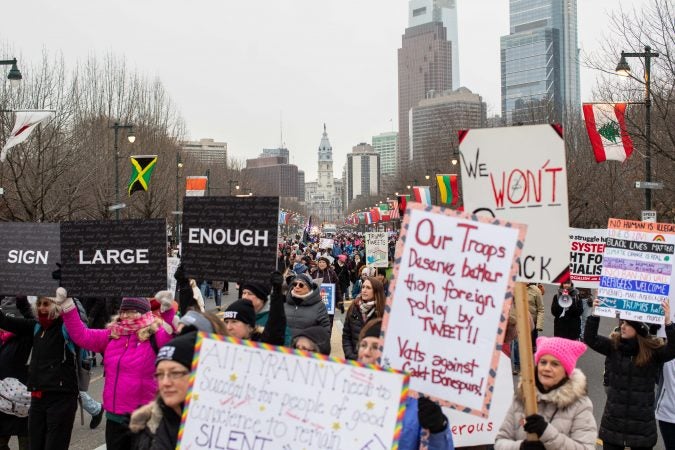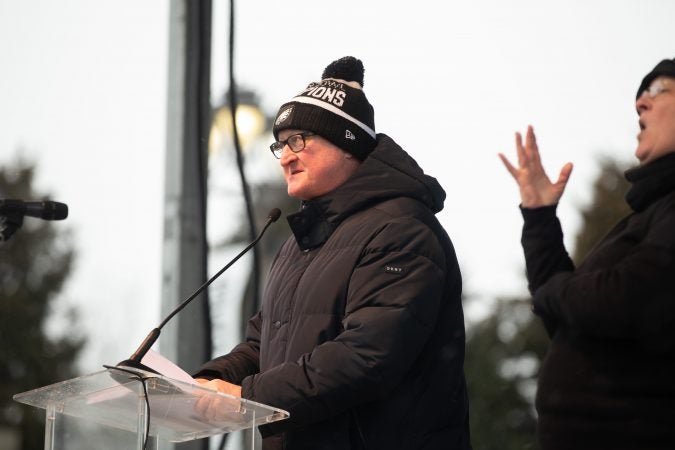‘We cannot wait:’ Philly area youth tackle gun violence, climate change at this year’s Women’s March
For many young people at the march, it was about showing the lawmakers and other people in power that they’re galvanized and ready for change.
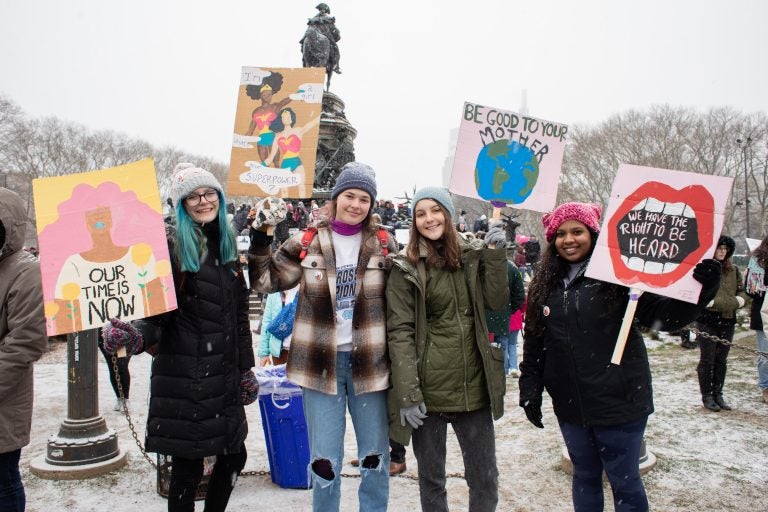
Downingtown East High School students Chloe Baumann, Hope Hessler, Megan Beale, and Gabbi Chacko traveled to Philadelphia to attend the Women's March. (Becca Haydu for WHYY)
Myriah Padilla, 15, wants the adults in charge to know that she knows what she is talking about.
“We’ve seen everything that these adults have done, the mistakes they’ve made,” said Padilla, a student at Parkway Center City Middle College. “We’re learning from their mistakes and trying to be a better generation.”
Padilla took that message to the fourth annual Women’s March on Philadelphia — a public action organized independently of the international movement that saw more than 3 million people in cities across the world protest the 2016 inauguration of President Donald Trump.
Despite bone-chilling weather and a quick, but heavy, snowstorm, thousands of people took over Eakins Oval and the Benjamin Franklin Parkway with handmade posters and pink crocheted hats.
This year’s march was much more than just about protesting — it was also about voting. Canvassers and tables were set up for many of the Democratic candidates. And for many of the young people in attendance or speaking, it was about showing the lawmakers and other people in power that they’re galvanized and ready for change.
Padilla and her classmates — Cyniah Drew, 15, and Kareema Chisolm, 17 — are youth gun violence activists. And they wanted the Women’s March attendees to understand how inaction on preventative gun violence measures have affected their lives.
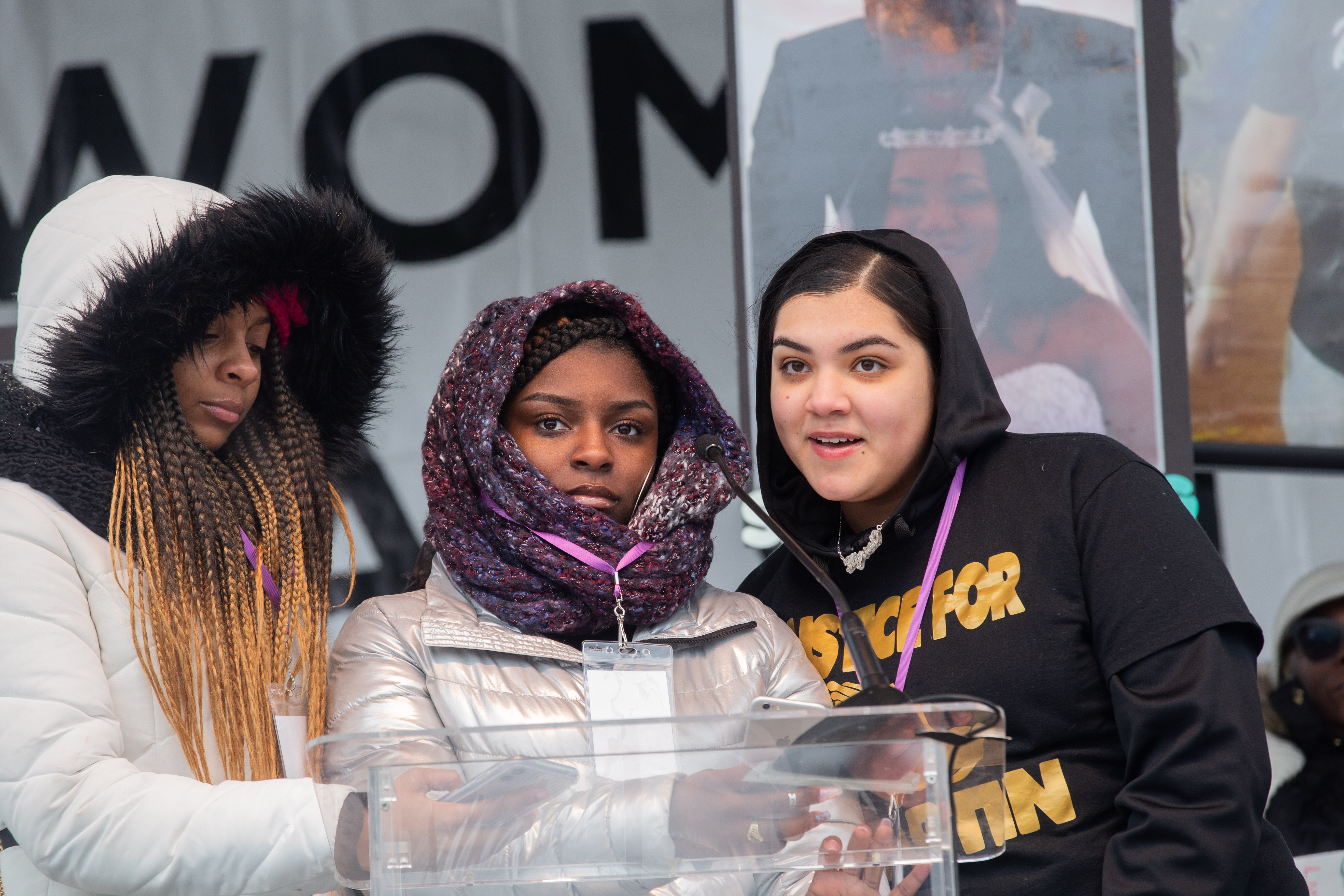
Drew described the pain caused by the death of her two uncles, both killed by guns.
“Both of these men were joyful, they were never afraid to give someone a helping hand,” Drew said. “I’m hurt and emotional speaking about these deaths but that is why I’m up here, telling my story, to be an inspiration to those who have experienced the same.”
On Dec. 31, 2019, a woman that lives down the street from Chisolm was shot and killed in her home. The New Year’s Eve killing brought the number of gun-related homicides in Philadelphia to 356, making it the deadliest year of the decade.
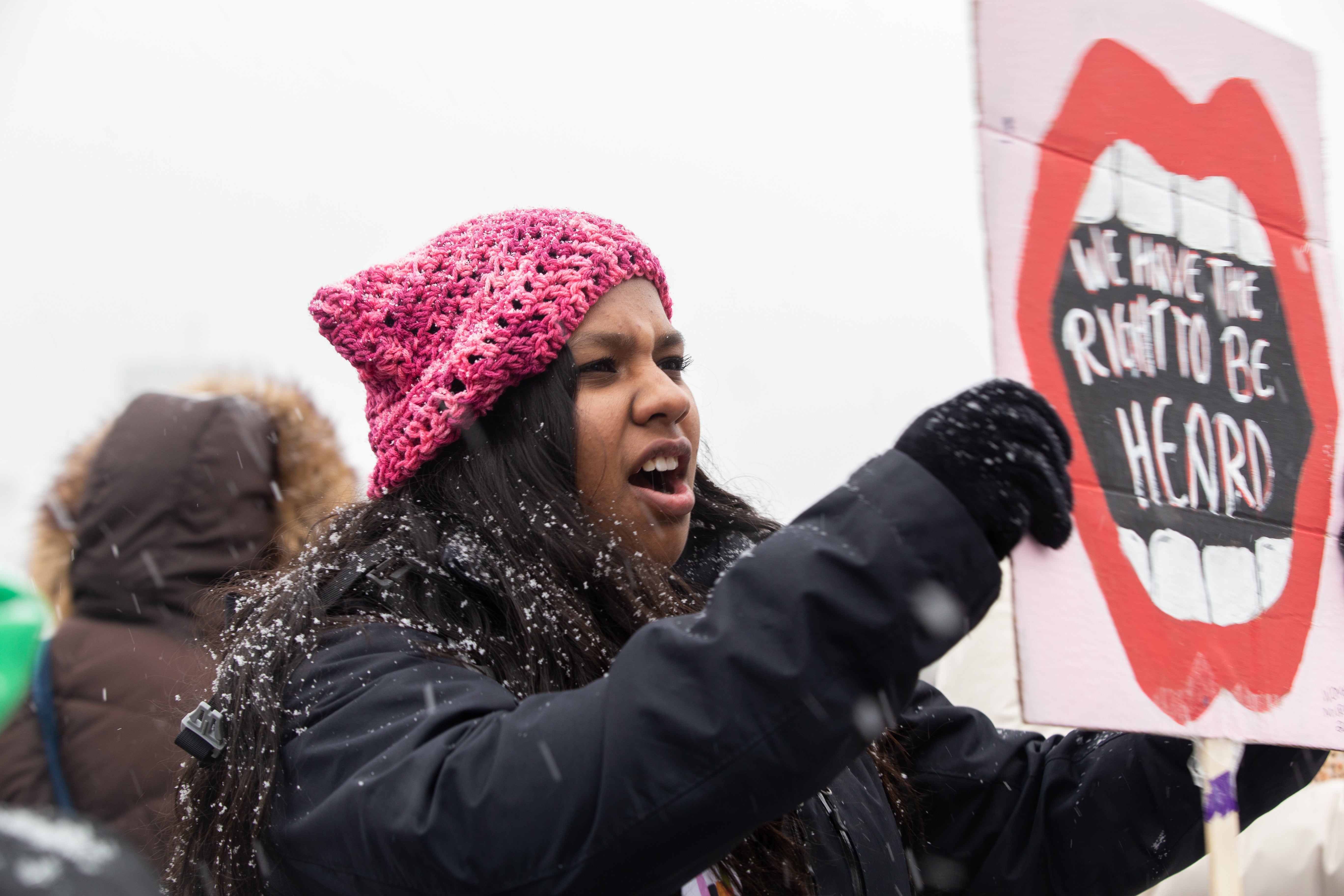
The three Black teenagers stood on the stage and shared fears of becoming another gun violence statistic.
“We will not rest until our voices are heard. We will not rest until change is made,” the trio said in unison.
Although they aren’t yet able to vote, they’re hopeful that their messages will inspire change in the city.
“I want to see more women in office but also more women of color,” Padilla said. “For me to see someone who is Hispanic or Black, I think ‘Oh, I can do what she’s doing.’”
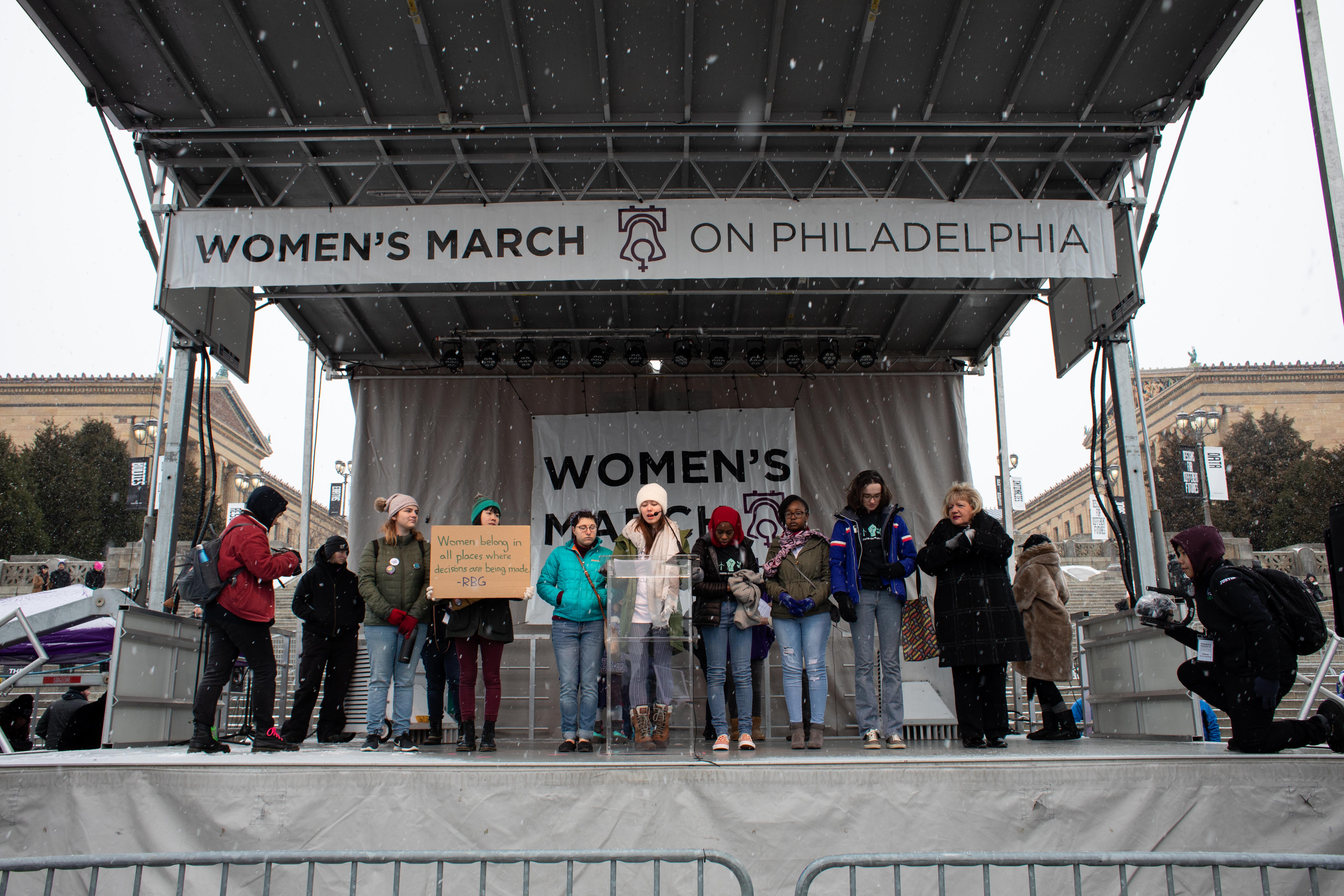
The Parkway students weren’t the only high school students to take over the Women’s March stage. Lorraine Ruppert, a 17-year-old climate activist from Lower Merion, and the chapter organizer for the Pennsylvania Youth Climate Strikes, didn’t mince words during her speech.
“I’m a high schooler, so you could say I’ve pretty much mastered the art of procrastination,” Ruppert said. “But politicians and corporate business owners are not high schoolers and our futures are not something that can be procrastinated and pushed aside. We cannot wait. Here we are, bringing faces, and voices and stories, to the numbers and statistics and graphs.”
Ruppert said the warning signs of climate change have echoed throughout her entire life. She recalled as a third-grader asking her mom what global warming was after reading about it in a children’s book. She talked about a cancer cluster just outside of Pittsburgh that may be linked to fracking operations in southwestern Pennsylvania, and noted a spate of heat-related early dismissals at Philly schools this past summer.
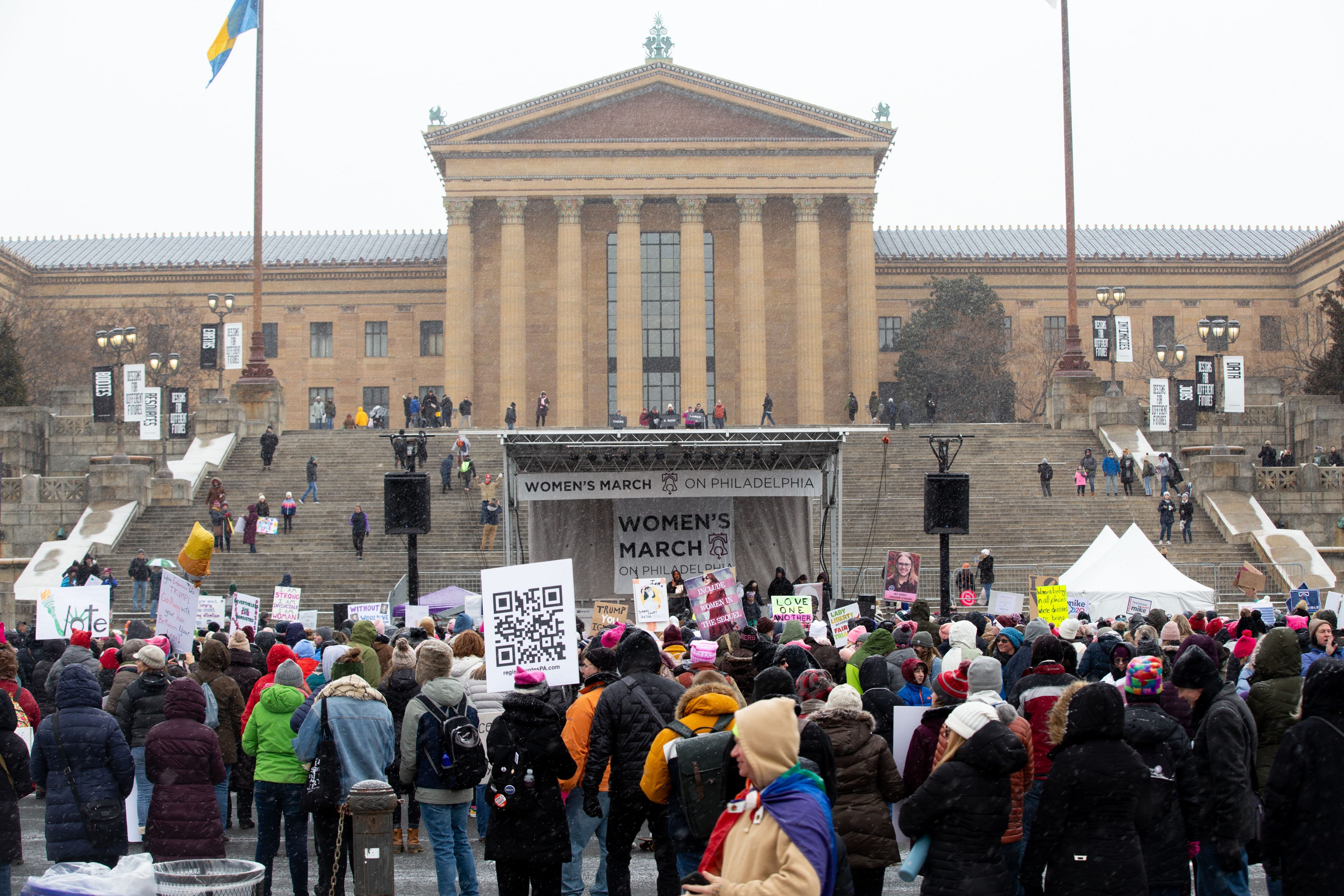
Ruppert’s overall message, like that of Padilla, Drew and Chisolm, was a call to action directed at those in power including Congressmembers Madeleine Dean, Chrissy Houlan and Mary Gay Scanlon, who were in the audience.
“Our rights as the younger generation, to live in a sustainable future, to pursue our hopes and dreams, are becoming endangered,” Ruppert said. “Our rights as humans to have access to clean drinking water, and clean air to breathe are becoming endangered.”
Ruppert and the rest of Pennsylvania Youth Climate Strike team will protest next Saturday with Philly Thrive against the sale of the Philadelphia Energy Solutions refinery ahead of the final hearing on its auction plan.
A signal of a changeover in power
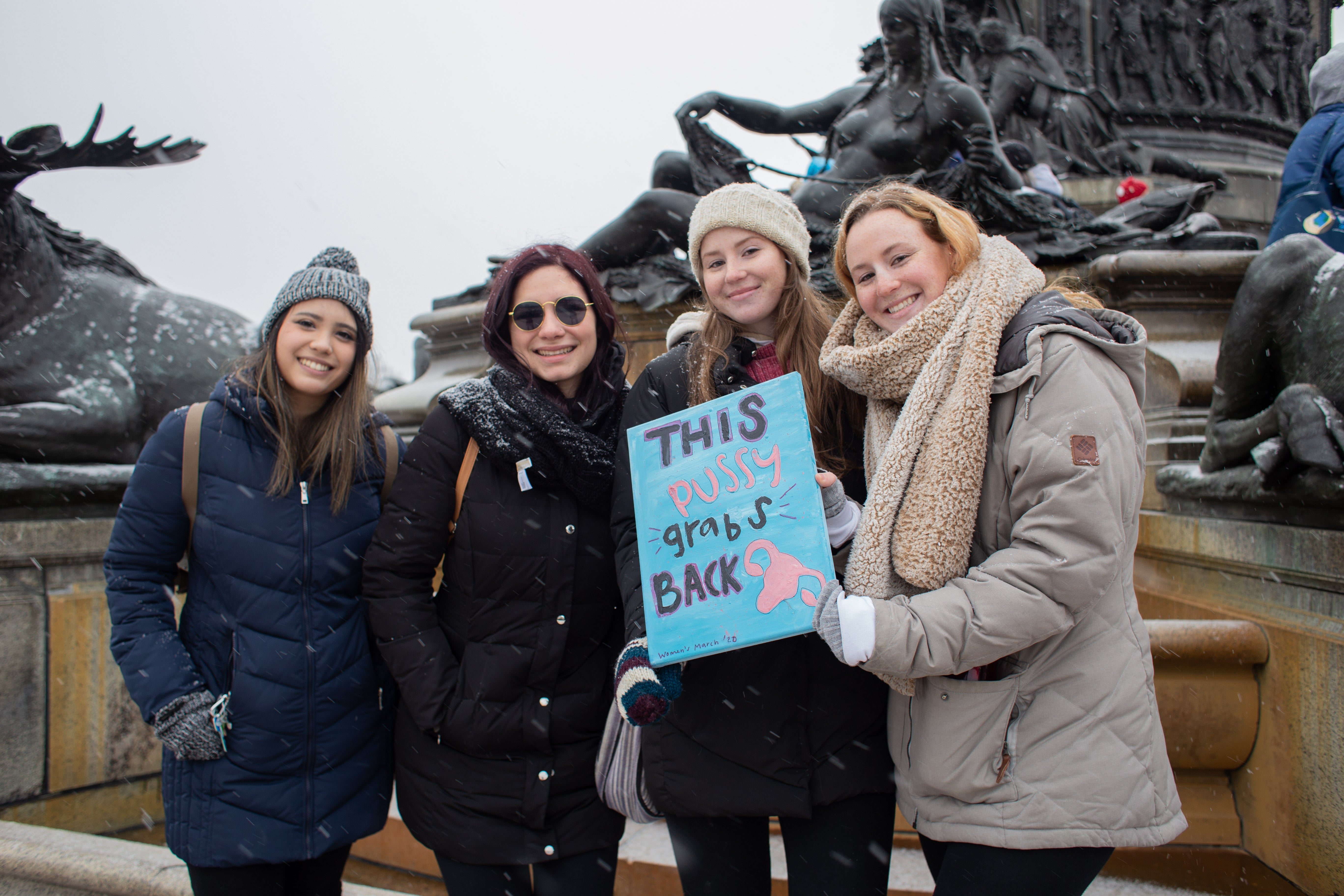
Many other young marchers in attendance were compelled to show up because of a desire to shift the nation’s political realities.
Seventeen-year-old Hope Hessler just makes the cut off to vote in the 2020 presidential election — she turns 18 on Oct. 4. Hessler said she went to her first protest when she was 7-years-old.
She attended the first Women’s March after Trump was elected and remembers how hopeful she felt seeing the massive crowd of people who shared a desire to make their voice heard.
Hessler — who helps run a March For Our Lives chapter at Downingtown East High School — is still uncertain about which Democrat candidate she’ll vote for in November. For now, she’s leaning toward Elizabeth Warren.
“I feel like, honestly, if there are a man and woman and they are equally able to do the job, I feel like we should vote for a woman because they haven’t gotten the chance to,” Hessler said.
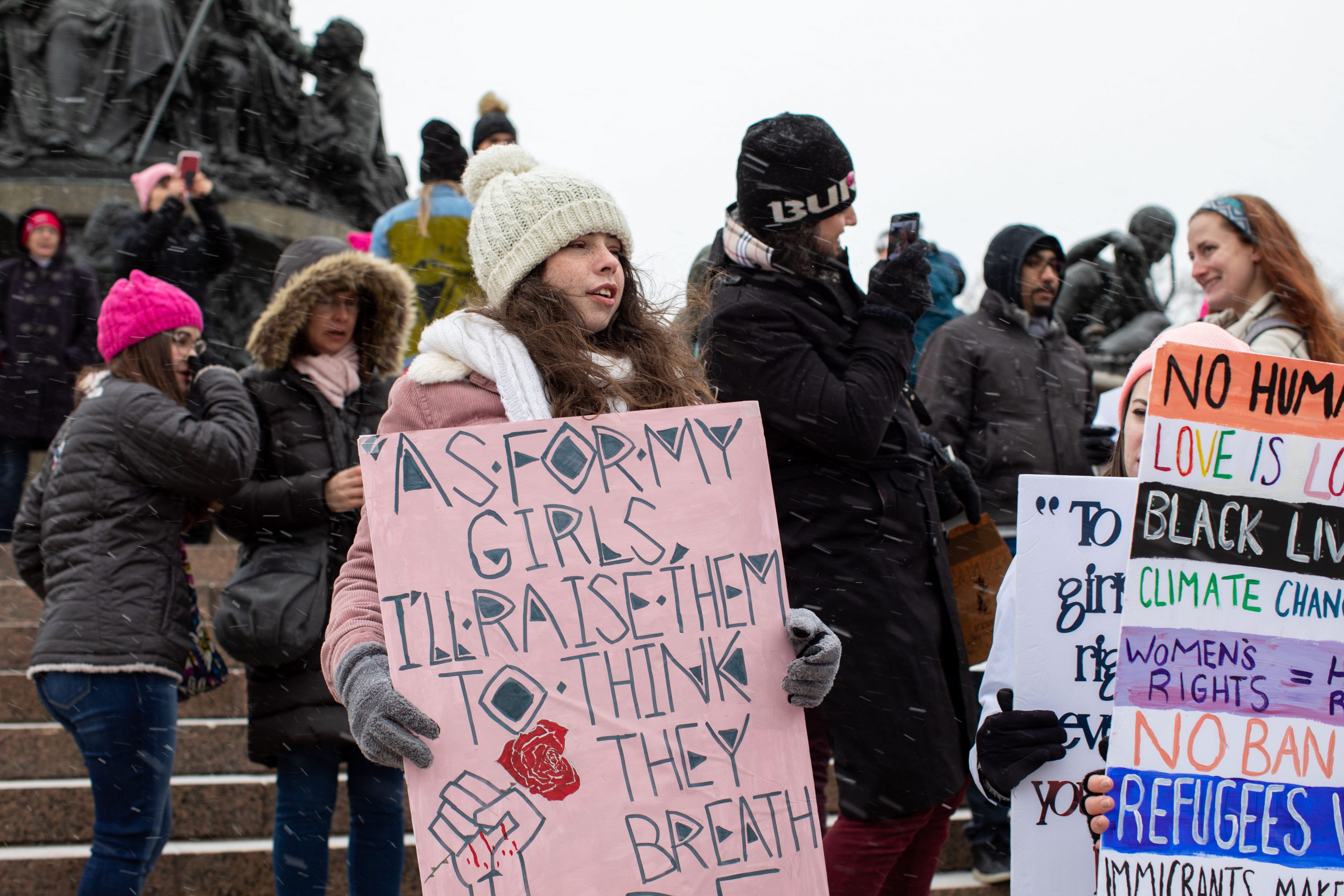
Kaylee Kurdish, 17, is a freshman at Drexel University studying business. Although she won’t be able to vote until 2021, she’s more ready than ever to speak up for the younger generation.
“The young people are going to becoming more into power, and driving more of the market, and be making more of the decisions that will impact us and our livelihoods,” Kurdish said. “This is a signal of a change-over in power, especially if we can elect someone that shares those kinds of values of younger people.”
WHYY is your source for fact-based, in-depth journalism and information. As a nonprofit organization, we rely on financial support from readers like you. Please give today.


